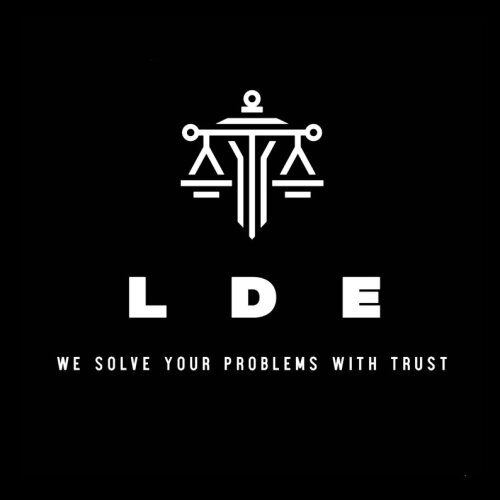Best Private Equity Lawyers in Islamabad
Share your needs with us, get contacted by law firms.
Free. Takes 2 min.
List of the best lawyers in Islamabad, Pakistan

Asif & Co. Corporate/Constitution Lawyers in Islamabad and Rawalpindi
30 minutes Free ConsultationAbout Private Equity Law in Islamabad, Pakistan
Private equity (PE) refers to investment funds, generally organized as limited partnerships, that buy and restructure companies that are not publicly traded. In Islamabad, Pakistan, the private equity sector has seen significant growth in recent years, with local and foreign investors taking interest in the opportunities available. Usually, private equity involves complex transactions, including fund formation, mergers and acquisitions, due diligence, and regulatory compliance. The legal framework governing private equity in Islamabad is primarily based on Pakistani corporate and securities regulations, with oversight from authorities such as the Securities and Exchange Commission of Pakistan (SECP).
Why You May Need a Lawyer
Engaging in private equity deals involves multiple legal considerations and potential pitfalls. Here are some common situations where you may require legal help in private equity matters:
- Setting up or structuring a private equity fund or partnership
- Negotiating and drafting investment agreements
- Conducting legal due diligence on target companies
- Complying with SECP rules and regulations
- Navigating tax implications for PE transactions
- Managing cross-border investments and compliance with foreign exchange laws
- Handling disputes between stakeholders
- Ensuring proper exit strategies such as IPOs or trade sales
- Reviewing antitrust and competition law requirements
- Protecting intellectual property during buyouts or mergers
A specialized private equity lawyer can help guide you through complex regulatory requirements, safeguard your interests in contracts, and provide strategic advice to minimize risks.
Local Laws Overview
Private equity transactions in Islamabad are mainly governed by Pakistani company law, securities regulation, foreign exchange rules, and antitrust legislation. Some of the main legal frameworks affecting private equity include:
- Companies Act, 2017 - Governs company formation, management, and dissolution in Pakistan.
- Securities and Exchange Commission of Pakistan Act, 1997 - Establishes the SECP as the regulatory authority for securities and corporate sector oversight.
- Foreign Exchange Regulation Act, 1947 - Regulates inflow and outflow of capital and foreign investments.
- Income Tax Ordinance, 2001 - Impacts tax treatment for private equity deals.
- Competition Act, 2010 - Addresses antitrust and fair competition issues in mergers and acquisitions.
The SECP has specific guidelines for private equity and venture capital funds, and any fund or transaction must comply with capital adequacy, disclosure, and governance requirements. Foreign investors must also obtain necessary approvals pertaining to investment, repatriation of profits, and currency regulations. Legal compliance at each stage is critical for success and to avoid penalties.
Frequently Asked Questions
What is the role of the SECP in private equity transactions?
The SECP regulates the establishment, operation, and management of private equity funds, ensuring that they comply with relevant laws and protecting investor interests.
Can foreign investors participate in private equity in Islamabad?
Yes, foreign investors can participate in private equity subject to local laws, foreign exchange regulations, and SECP approvals. Certain sectors may require additional permissions.
What are the main risks involved in private equity investments?
Risks include regulatory changes, company performance, exit challenges, disputes among partners, and tax implications. Proper due diligence and legal advice help mitigate these risks.
How is a private equity fund structured in Pakistan?
Most private equity funds are structured as limited partnerships or companies. The SECP prescribes guidelines for structuring, registration, governance, and disclosure.
Is there a minimum investment requirement for private equity funds?
SECP guidelines often specify minimum capital requirements for establishing private equity funds. The exact amount varies depending on the type of vehicle and sector.
What is the taxation treatment for private equity income?
Private equity earnings are subject to the Income Tax Ordinance, 2001, with specific rules for capital gains, dividends, and repatriation of profits. Tax rates can vary based on the nature of the investment and investor residency.
How are disputes resolved in private equity deals?
Disputes may be resolved through negotiation, mediation, arbitration, or litigation depending on the contract terms and the parties involved. Many agreements specify arbitration to expedite resolution.
What due diligence is required before a PE investment?
Legal due diligence includes reviewing corporate documents, regulatory compliance, intellectual property, employment obligations, taxes, and any ongoing litigation involving the target company.
Can private equity be used to buy or restructure family-owned businesses?
Yes, private equity is increasingly used for restructuring, succession planning, or expansion of family businesses, provided both parties agree on terms and legal compliance is ensured.
What legal protections should investors seek in a private equity agreement?
Investors should seek protections such as representations and warranties, indemnities, exit rights, governance provisions, and dispute resolution mechanisms in all agreements.
Additional Resources
If you need further understanding of private equity law in Islamabad, consider consulting the following organizations and resources:
- Securities and Exchange Commission of Pakistan (SECP)
- Pakistan Board of Investment (BOI)
- Islamabad Chamber of Commerce and Industry (ICCI)
- Law Society of Pakistan
- Local private equity industry associations
- Reputable law firms specializing in corporate and investment law
These organizations can assist with up-to-date regulations, policy changes, and provide guidance on best practices in the private equity industry.
Next Steps
If you are considering involvement in private equity in Islamabad, Pakistan, the following steps are recommended:
- Identify your objectives and possible investment sectors
- Research potential target companies or partners
- Engage a qualified private equity lawyer with experience in Pakistani law
- Ensure all legal documentation is comprehensive and clear
- Conduct thorough due diligence before any investment
- Consult with financial and tax advisors for a holistic strategy
- Stay updated with SECP regulations and industry news
Taking these steps with professional guidance will help you navigate the complexities of private equity transactions in Islamabad and maximize your investment potential while remaining compliant with local laws.
Lawzana helps you find the best lawyers and law firms in Islamabad through a curated and pre-screened list of qualified legal professionals. Our platform offers rankings and detailed profiles of attorneys and law firms, allowing you to compare based on practice areas, including Private Equity, experience, and client feedback.
Each profile includes a description of the firm's areas of practice, client reviews, team members and partners, year of establishment, spoken languages, office locations, contact information, social media presence, and any published articles or resources. Most firms on our platform speak English and are experienced in both local and international legal matters.
Get a quote from top-rated law firms in Islamabad, Pakistan — quickly, securely, and without unnecessary hassle.
Disclaimer:
The information provided on this page is for general informational purposes only and does not constitute legal advice. While we strive to ensure the accuracy and relevance of the content, legal information may change over time, and interpretations of the law can vary. You should always consult with a qualified legal professional for advice specific to your situation.
We disclaim all liability for actions taken or not taken based on the content of this page. If you believe any information is incorrect or outdated, please contact us, and we will review and update it where appropriate.
















